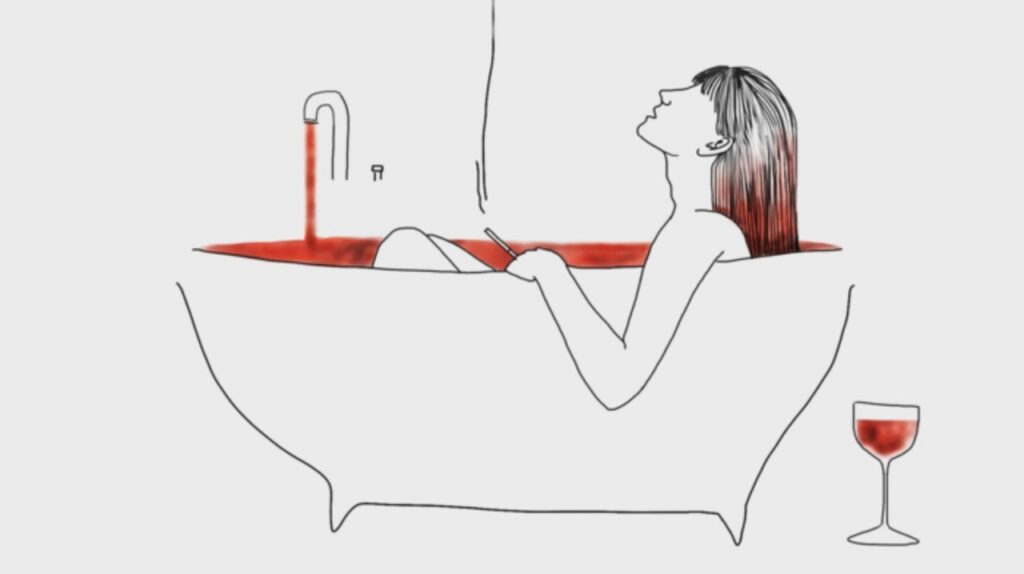By Nilanjana Dey

As a pre-pubescent tween, periods were an exciting enigma for me.
Whispered requests for pads, furtive glances to check for stains – it seemed as if all my friends who’d hit puberty were in this secret covenant that I wasn’t a part of.
When I finally got my periods, my mother explained how this was impure blood that made its way out of the body every month. She said there were a lot of different rules attached to this but all I had to do was stay away from the puja setup. And dispose of my pads properly after washing them (which I realized you absolutely shouldn’t do, after reading the packaging).
Being called ‘impure’ and restricted from doing a particular thing made me feel a little shunned. But that was just the tip of the iceberg.
Classmates traded stories of different period restrictions in their homes – not entering the kitchen, staying in a separate room, or sleeping on the floor. Some of us would take half days when the cramps got too much. Others would miss school altogether.
My cross to bear was irregular periods. I didn’t know when it would arrive and hence lived in perpetual fear of staining my uniform or god forbid, a bedsheet.
But the height of indignity was being distanced from religious celebrations with family and friends. Mother’s big eyes would signal me from across the room to steer clear of the cleaned ceremonial area. I would make up some excuse to explain to my cousin why I can’t sit with him and everyone else up front. It made me feel both angry and helpless, and teenage life was quickly filled with such instances.
Once in college and living away from home, I started making mini rebellions against the mandated secrecy around periods.
I began by calling it ‘periods’ rather than the common euphemisms – “shorir kharap” (feeling unwell), “down” etc. I wasn’t sick or ‘down’ with anything after all.
I would buy pads and shove them, unwrapped, into my transparent plastic bag alongside other purchases. Walking down the street I would imagine the horrified gasps of idling aunties. And even though no one said anything outright, the slight discomfort of the pharmacist at letting this happen made me feel powerful.
I also started lighting the agarbatti in my room during my periods, breaking the only restriction my mother had put on me. The first time, I waited a week for God’s wrath to manifest in some kind of misfortune befalling me but nothing happened, so I continued.
At some point I explained to my mother the science behind how menstruation happened. And while it was difficult for her to let go of all her inherited beliefs, to her credit, she did her best to not treat me as an ‘impurity’.
In my twenties, this rebellion transformed into ensuring that my periods never make me ‘less than’. Treating myself any different during periods meant showing weakness, revealing a chink in the armour. Something that patriarchy could point at and say “Aha, we were right, women cannot be equal to men because they have periods to deal with!” So, like the women from the Whisper commercials who jump over the camera in white pants specifically during their periods, I decided to treat mine as irrelevant to my health, work, and routine life.
Around the same time, the boss-babe phenomenon was at its peak. Women showcased becoming successful in a man’s world by being exactly as toxic and aggressive as men. And that contributed to my whole “I will be unstoppable despite my periods” vibe.
When the discourse around “menstrual leave” was gaining ground, I couldn’t shake the idea that this would be another reason for the mostly male decision-makers to silently but surely disregard women when filling top positions. An affirmative action will be weaponized as another evidence of us being ‘not equal’ to men.
So, in the workforce, most other women and I carried on without allowing our menstruation to ‘get in the way’. If things got too uncomfortable we would quietly cover for each other, but everyone was careful to not make this an issue that needed special attention or disrupted our ability to deliver on the work front.
Once I stepped into my thirties, I started seeing reels about the menstrual cycle phases.
It began with fun stuff about how the ovulation phase increases libido or how the luteal phase brings mood crashes. Then came information about how hormone levels fluctuate throughout our cycle and the impact it has on the body. I began to notice my own phases of high energy and cheerful collaboration, and other phases of low energy and preference for solo focus.
Now this is scientific information that I am inclined to believe. But despite that evidence, I find it hard to acknowledge my period as something that actually, materially impacts my daily life. Specifically accepting the need to make space for rest during my periods makes me feel guilty.
Because that’s weak, that’s betraying the ideal of equality, that’s letting the patriarchy win. Right?
Given the current resurgence of traditional patriarchal views in popular culture, any acceptance of uniquely feminine physiological needs seems like a slippery slope. Women operating on lower energy levels or needing to slow down during periods can easily be spun into “go lie down in a different room and don’t enter the kitchen”. Control reframed as care.
But a part of me does wonder if I can operate in recognition of my body’s capacity, its highs and lows, without having to worry about handing patriarchy its ‘gotcha!’ moment. If my twenties self had known all this, would she do things differently? Would she be open to the idea that her body needs to vary its pace periodically, instead of pushing through exhaustion and then crash-landing in her thirties like a burnt-out meteorite?

Subscribe to our newsletter To Recieve Updates
Join our newsletter to receive updates